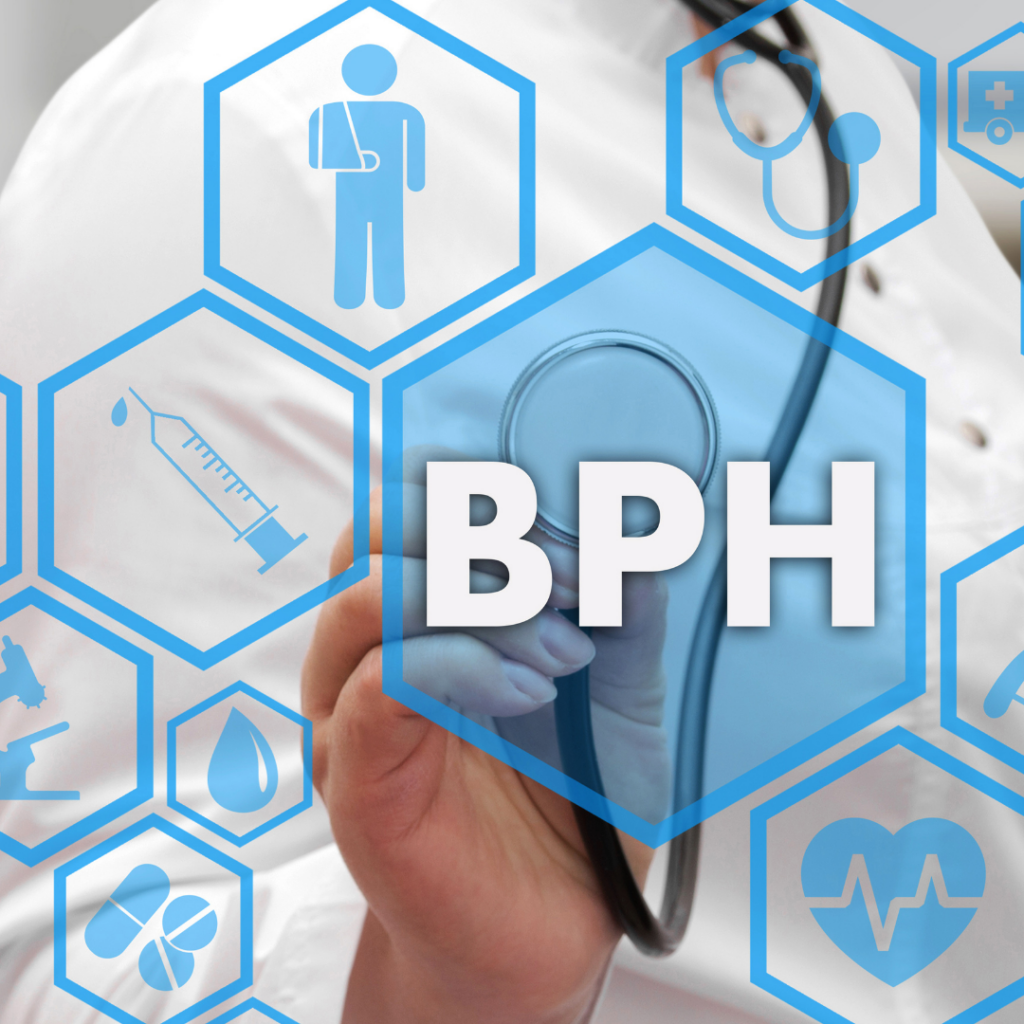

by
|
What’s the one thing 50% of men ages 51-60 (and 8% of men in their 40s) have in common? A condition commonly known as enlarged prostate or benign prostatic hypertrophy (BPH). While the risk of BPH does increase with age, the condition affects different men, well, differently. Some men experience troubling symptoms and disease states, while others do not. Wondering what is the prostate, when you should worry about prostate health, and how to treat BPH? Read on!

The prostate is a small gland (about the size of a walnut or ping pong ball), which weighs around 30-35 grams when full size and healthy. Where is your prostate? The prostate is located below the bladder and in front of the rectum. The urethra, the narrow tube that transports urine and semen out of the bladder, passes directly through the middle of the prostate.
So, what is the purpose of the prostate? The primary function of the prostate is to produce a fluid that supports healthy sperm production and helps transport seminal fluid through the urethra.
Benign prostatic hypertrophy or enlarged prostate commonly occurs to men as they age. While the exact cause of an enlarged prostate isn’t known, a study published in the journal Scientific Reports revealed that “testosterone levels are negatively correlated with prostate volume (PV), and BMI, waist circumference and insulin are negatively correlated with PV in older patients. In addition, men with low testosterone developed a larger prostate than men with normal testosterone.”
Many of the symptoms of enlarged prostate are related to urine flow and frequency. That’s because as the prostate grows it can put pressure on the urethra, thus impeding the ability to urinate normally.
While less common, other symptoms of an enlarged prostate may include infections of the urinary tract, bloody urine, inability to urinate, and rarely, bladder stones and kidney failure.
This tie between BPH and kidney failure has prompted some men to ask what are the prostate diseases of the kidney? The inability to effectively expel urine from the body can put stress on the kidneys over time. Left unchecked, conditions like BPH that obstruct urine flow can lead to kidney damage and renal failure.
Most doctors recommend that men undergo regular prostate exams as they age, especially since early detection of prostate cancer is one of the best ways to combat the disease. In addition, if you have symptoms of BPH or prostate cancer, you should schedule a prostate exam as soon as possible. So, when should you start having annual prostate exams?

According to the American Cancer Society, men with an average risk for prostate cancer should be screened for prostate cancer starting at age 50. Men at high risk—including African American men and those who have a first degree relative who was diagnosed with prostate cancer before age 65—should be screened starting at age 45. Men who have had a first degree relative diagnosed with prostate cancer at an early age should be screened starting at age 40.
During a prostate exam, the practitioner will ask you a series of questions about your health and any symptoms or concerns you have and perform tests to screen for BPH, prostate cancer and other prostate issues like prostatitis. These tests may include:
When a patient has elevated levels of PSA, the practitioner may also perform a biopsy to rule out prostate cancer. However, since most men with elevated PSA levels do NOT have prosercent of men.” In 2011, the FDA also warned that 5-ARIs may increase the risk of a more serious form of prostate cancer.
